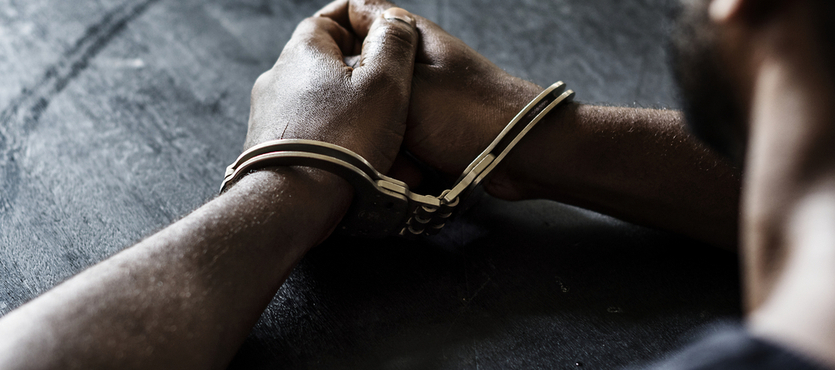A group of contractors left the island nation under fire after having been accused of illegally propping up embattled strongman Jovenel Moïse.
Details are murky, but the men arrived in a charter plane and proceeded to the country’s central bank. There, they planned to electronically transfer $80 million from a public oil fund to a private Moïse account. Before they could do so, bank security guards asked questions. Contractor leader Kent Kroeker and his men wound up in jail, but for reasons that remain unclear, they were released and left the country without further incident.
Periodic strikes and demonstrations have almost paralyzed the island nation since July 2018, when the government tried to increase fuel prices by 50%.
Contractor Mission in Haiti
Haiti has always been something of a rogue nation. Sometimes that is a good thing and sometimes it is not.
In November 1803, rebel forces under former slave Jean-Jacques Dessalines vanquished the colonial French at the Battle of Vertieres. On New Year’s Day 1904, Dessalines proclaimed the independent Republic of Haiti.
There was trouble right from the start for the former slave republic. Shortly thereafter, a French naval squadron arrived in Port-au-Prince and demanded stiff reparations for the recent war. Haiti could not afford the payment, but another war would be even more costly. So, Dessalines, who had basically become a dictator, coughed up the payment.
Haiti was already behind the eight-ball because, to the French, it was the quintessential mercantile colony. This philosophy maintained that colonies, like Saint Domingue (the French colonial name for Haiti) existed only to benefit the mother country. So, France exploited the people and took as many natural resources as they could load onto ships bound for Europe. Furthermore, France did not allow any self-government. So, there was no money and no political infrastructure.
Most Caribbean nations have had their share of economic and political hardship over the decades. Sometimes these wounds were self-inflicted, and other times, these countries were caught in the international crossfire. But Haiti has never been able to pull itself out of its tailspin. The odds were just too long.
When the 2010 earthquake hit, the nation could not deal with the aftermath. The fragile economic and political system completely fell apart.
To prevent a disaster of Biblical proportions, the United States sent significant economic aid. Private military contractors arrived too. These individuals made sure American money got where it was supposed to go and that humanitarian aid went to people instead of street warlords.
10 years later, Haiti is still one disaster away from collapse. Private military contractors are there to keep that from happening. These groups have more flexibility than regular army elements. Private military contractors are also cheaper to operate and they have a lower political profile. Everyone wins.
Injury Risks in Haiti
Contractors face danger here. Although they are nothing like the hazards of Syria, Iraq, or Afghanistan, there are risks just the same. Contractors willingly put themselves in harm’s way. There are easier ways to make a buck.
Large, unruly street demonstrations are not common in the United States. Due to freedom of speech and freedom of assembly, groups need not resort to such tactics to broadcast their message. These cherished freedoms we enjoy here are the stuff of fairy tale legends in most parts of the world, including Haiti. Police often violently break up small gatherings, since these groups are defenseless. The tables are turned when hundreds or thousands of people take to the streets.
Injuries are common in these situations. Tensions between police and people can only simmer for so long before they boil over. Many times, private military contractors are caught in the chaos. In many situations, a rock to the head can be as dangerous as a bullet to the head.
What we would consider workplace injuries are also common in Haiti. These incidents include falls and motor vehicle accidents. In the United States, the Occupational Safety and Health Administration, along with other agencies, keeps workplaces at least reasonably safe, but there is no OSHA in Haiti. There, people need to take no safety precautions whatsoever to protect workers, and the workers are the only ones who pay the price.
Injury Compensation Available
In these situations, America’s workers’ compensation system pays lost wages to victims regardless of fault. The Defense Base Act does basically the same thing for injured contractors. The DBA divides falls and other illnesses or injuries into four different categories:
- Permanent Total Disability: PTD does not mean the victim is bedridden. This designation means that the victim has an injury which will never heal. PTD also has an occupational component. Confinement to a wheelchair would be disabling for most private military contractors, but there are lots of college professors in wheelchairs.
- Permanent Partial Disability: Sometimes, broken bones and other wounds never entirely heal. The victim must deal with some permanent loss of function. Compensation depends on the nature and extent of the disability.
- Temporary Partial Disability: Some victims can go back to work after an injury, but they are not at full speed. They must accept light duty or work a reduced schedule. So, the DBA usually pays two-thirds of the difference between the old and new salaries.
- Temporary Total Disability: Most DBA injuries are TTDs. The victim is unable to work until a physician gives the all-clear signal. During this time, the victim’s family needs money to meet everyday expenses. Therefore, the DBA typically pays two-thirds of the victim’s average weekly wage for the duration of the temporary disability.
The AWW is not always easy to calculate. There is a big difference between a truck driver salary and job duties in Portland and the same things in Port-au-Prince. The lost wages compensation must take that difference into account. Furthermore, the AWW usually includes non-cash compensation, like performance bonuses and housing allowance.
For more information about DBA medical benefits, contact Barnett, Lerner, Karsen, Frankel & Castro, P.A.

